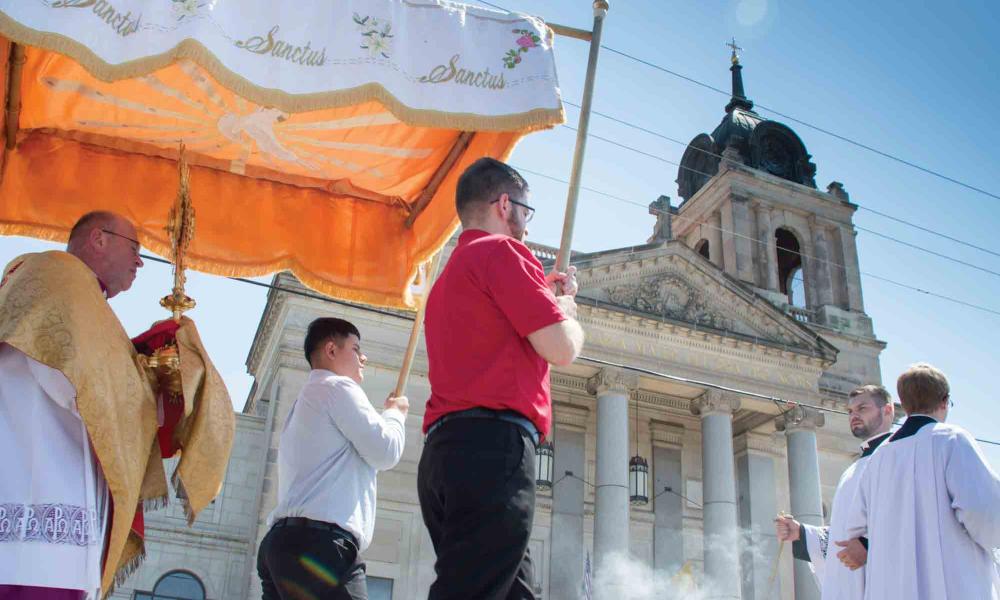
What is a Eucharistic Procession?
The Eucharist is the source and summit of the whole Christian life. A eucharistic procession, therefore, is a public witness of the veneration toward the most holy Eucharist, conducted through public streets. It takes place in this way: A consecrated host – that is, the real and substantial presence of Jesus Christ: body, blood, soul and divinity – is placed within a monstrance, which is then lifted and carried by a priest who leads the faithful in procession. Like a pilgrimage, a eucharistic procession normally starts at one holy place and ends at another. This earthly journey reminds the Catholic faithful of their spiritual journey toward eternal life with God.
Eucharistic processions first became a popular practice in the life of the Church during the celebration of Corpus Christi, traditionally celebrated on the Thursday after Trinity Sunday. The idea for this solemnity is attributed to St. Juliana, who lived in the 13th century. As Pope emeritus Benedict XVI eloquently noted in a homily in 2007, “It was born for the very precise purpose of openly reaffirming the faith of the people of God in Jesus Christ, alive and truly present in the most holy sacrament of the Eucharist. It is a feast that was established in order to publicly adore, praise and thank the Lord, who continues ‘to love us to the end,’ even to offering us his body and his blood.” Though directly connected to the liturgical feast of Corpus Christi, eucharistic processions may take place at other appropriate times and places under the authority of the bishop and following liturgical norms.
In several countries around the world, eucharistic processions incorporate the country’s rich cultural traditions. In Poland, for example, large crowds of people process in traditional Polish outfits with ornate decorations. For a eucharistic procession in Brazil, the streets are lined with colors, drums and colorful costumes.
By processing with the Holy Eucharist in a reverent, prayerful and joyful manner, Catholics can honor Christ in the Eucharist and serve as witnesses to the intimate presence of God in the world and in each individual. Processions powerfully display the Incarnation, or God becoming human, and thus speak of his merciful love for all who journey to eternal life with him.
